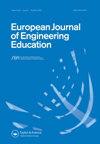Making STEM real: the design of a making-production model for hands-on STEM learning
IF 2.8
Q2 EDUCATION & EDUCATIONAL RESEARCH
引用次数: 0
Abstract
ABSTRACT In the face of information technology changes, not all students will have access to the means to prepare for this future of work. In addressing this issue, in this study, the authors investigate the impact of a ‘Making as Micro-Manufacturing (M2)' model in motivating STEM-activity participation and developing self-efficacy among high-schoolers hailing from an underserved community. The approach involved integrating practice-based learning and activities into a high-school class curriculum resulting in the production of small-batch volumes of products in real-world settings for everyday use like instructional kits for elementary school learning. Pre- and post-surveys were administered to ascertain the differences in students' Making and engineering self-efficacy tendencies. Our results saw increases in the students' Making and engineering self-efficacy across multiple dimensions and in-situ during a production process. In addition, our results also quantify and characterize that kinds of helping behaviours that occur in the students’ own self-organised production team.使STEM成为现实:为动手STEM学习设计一个制造-生产模型
面对信息技术的变革,并不是所有的学生都能获得为未来工作做好准备的手段。为了解决这一问题,在本研究中,作者调查了“制造作为微制造(M2)”模型在激励来自服务不足社区的高中生参与stem活动和发展自我效能感方面的影响。该方法包括将基于实践的学习和活动整合到高中课程中,从而生产出现实世界中日常使用的小批量产品,如小学学习的教学工具包。通过前后调查,了解学生制造和工程自我效能倾向的差异。我们的研究结果表明,在生产过程中,学生的制造和工程自我效能感在多个维度和现场都有所提高。此外,我们的结果还量化和描述了学生自己组织的生产团队中出现的各种帮助行为。
本文章由计算机程序翻译,如有差异,请以英文原文为准。
求助全文
约1分钟内获得全文
求助全文
来源期刊

European Journal of Engineering Education
EDUCATION & EDUCATIONAL RESEARCH-
CiteScore
7.30
自引率
13.00%
发文量
64
期刊介绍:
European Journal of Engineering Education is published six times a year in print and electronic editions and provides an essential forum for dialogue between researchers and specialists in the field of engineering education, at European and worldwide levels. European Journal of Engineering Education is the Official Journal of SEFI, the Socièté Européenne pour la Formation des Ingénieurs (the European Society for Engineering Education). SEFI is a non-governmental organization whose aims are to develop information about engineering education, to improve communication and exchange between professors, researchers and students and to promote cooperation between the various institutions concerned with engineering education.
 求助内容:
求助内容: 应助结果提醒方式:
应助结果提醒方式:


